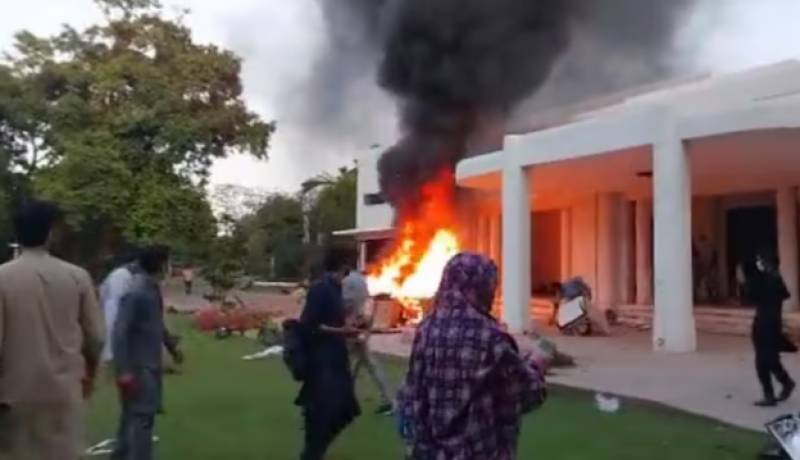
Former Prime Minister Imran Khan and his supporters – in Pakistan and the diaspora – have launched many media and social media campaigns to claim victimhood. It is interesting that those in Pakistan who are against the use of the Army Act or military courts against Imran Khan and his supporters are the very same people who the PTI has abused, trolled, arrested, and castigated all these years.
In a recent twitter thread, columnist Fahd Hussain laid out what he referred to the ‘whataboutery’ of the PTI and Imran Khan. “It doesn’t take long for the hunter to become the hunted. This has become evident in the aftermath of the shocking violence unleashed by leaders & supporters of PTI & the whataboutery of its top leadership including Imran Khan.”
Hussain noted that first, “PTI should have paid more attention to the Game of Thrones books/series. Had they done so, party leaders may have realised that narrative is not power – power is power. PTI armchair revolutionaries are today paying the price for ignoring harsh realities of power dynamics.”
Second, Hussain points out, “PTI’s pattern of climbing up escalation ladder against establishment is now clear. In a methodical (though flawed) way, Imran Khan kept upping the ante against army leadership by naming and blaming three and four star generals. He emboldened party rank & file to cross lines against military.”
Next, Hussain explains “Events of the past few months, especially after the government failed in its attempts to arrest Imran Khan from Zaman Park and later in keeping him detained after the Islamabad High Court arrest, that convinced Imran Khan and his supporters that he had, in fact, become untouchable. And so had they. But they forgot actions have consequences.”
Fourth, Hussain writes, “On the day of his release by the Supreme Court, Imran Khan touched his peak confidence. So he named the army chief directly for all his troubles. Lazy analysts proclaimed Imran Khan had become the most powerful man in Pakistan. All it took was 24 hours from that moment to bend the arc of reality.”
Finally, as Hussain concludes, “On May 9 PTI was attacking military targets and proclaiming revolution. Ten days later, it is reading the first draft of its obituary. The party may survive, but it will do so as an example what happens when hubris shapes decisions & when you forget power, not narrative, is power.”
![]()





